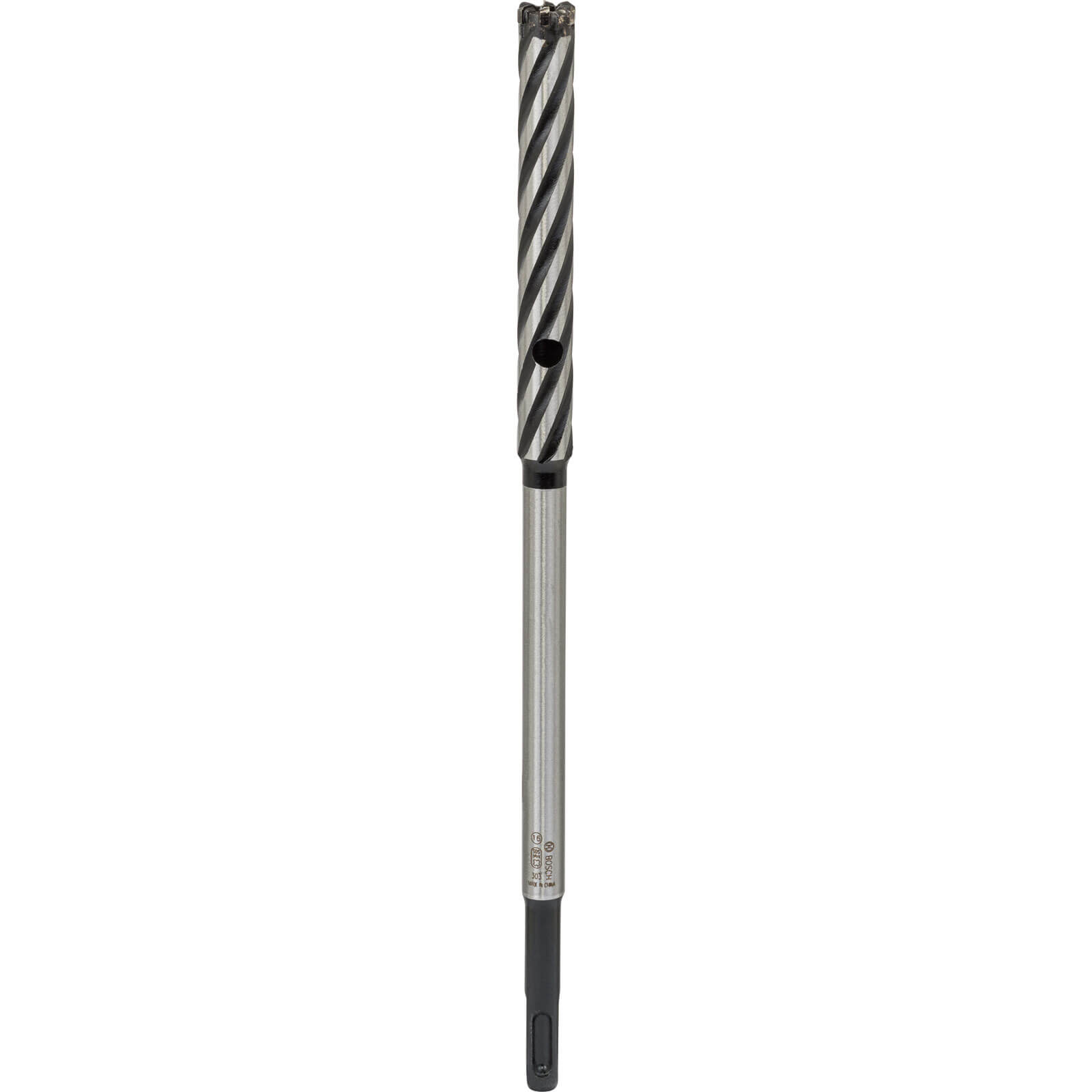D
Deleted member 174758
Which takes us back to where I started in this discussion...They may leave the factory perfectly straight, but a 1m long x 16mm will soon bend in use. Which is why you start deep holes with a short pilot drill.
I've found that cheap bits tend to bend a lot more in service, especially when you give them to idiots who think the way to use an SDS drill is to put their back into it and push... (for those unaware - you only need to guide and apply light pressure - the drill does the rest)
I have to say that it's a bit of a trade off. Once did a job where I had to drill 120+ 16mm holes through 150 to 200mm of reinforced concrete then through about 2mm of corrugated steel deck on the underside (to take bolts which held in place otherwise unsupported timber-framed pygymy walls in a call centre). The bits I used were 4-flute Hiltis and i got about 50 to 55 holes out of the first two bits, but they were still straight at the end if drilling, albeit completely blunt. It took me about 12 hours to do the lot including bolting up (after which the SM banned me from drilling on the job because it had been so noisy!). The office, who had ordered the bits for me, nearly had a fit when they got the bill - nearly £60 a pop! (and that was 7 or 8 years back). I had started out the day before with Bosch and DW 2-flute bits, but they simply couldn't handle the rebar or the the corrugated deck all that well. It took 3 to 4 times as long to drill each hole with them and they went blunt after 5 or 6 holes. It convinced me to buy multi-flute (3 or 4 flutes) over 2-flute drills in future, at least for reinforced concrete. These days Bosch, DW, Heller and Milwaukee all do multi-flutes from about 7mm diameter upwards, although they can take a bit of finding
Last edited by a moderator:


